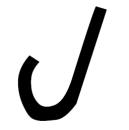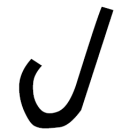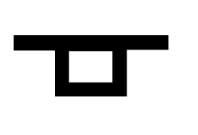Click here for the PDF version
3rd of the 2nd month 2022/2023
Shalom all,
Tehillah/Psalm 93:5 “Your witnesses have been very trustworthy. Set-apartness befits Your house, O יהוה, forever.”
I gave a message a few years back on this Tehillah/Psalm 93 called, “יהוה REIGNS AND SET-APARTNESS BEFITS HIS HOUSE!’ and highlighted the clear call for complete set-apartness that we are to walk in, as we hold firm to the hope we have in our Master and King!
While we may all acknowledge the clear Truth that set-apartness befits the House of Elohim, the reality is that most people do not know how to separate or distinguish the difference the set-apart and the profane, which is a worrisome thing indeed, as we see many people may claim to worship in set-apartness, yet their lives are mixed with common compromises that defile the called for set-apartness that we are to walk in!
In a message called, “DISTINGUISH BETWEEN THE SET-APART AND THE PROFANE!” I want to highlight the urgency of our need to properly distinguish between that which is set-apart and that which is profane, so that we ensure that we are walking in accordance to that which befits the House of our Master and Elohim!
When that which is set-apart is treated as common, then one’s ability to distinguish between the set-apart and profane is hindered and compromise sets in and is excused away as being acceptable as a form of worship, when in fact they are bringing strange and profane worship to Elohim and risk being cut off, cast out and destroyed, by the fire of His wrath in the day of His wrath!
The Hebrew word for ‘set-apart/set-apartness’, as most of you may know, comes from the noun קֹדֶשׁ qoḏesh – Strong’s H6944 – and it means ‘apartness/ consecrated/ dedicated/ that which is dedicated and separated unto יהוה’.
This word is really self-explanatory and carries with it great weight, in its identification of truly setting something or someone apart from another, with a clear distinction of being marked as separate and apart from the rest.
Set-apartness, in the Greek, is the word ἁγιασμός hagiasmos – Strong’s G38, which means, ‘consecration, sanctifying, purification’, and comes from the verb ἁγιάζω hagiazō – Strong’s G37 which means, ‘make set-apart, be set-apart, to separate from profane things and dedicate to Elohim’, which comes from the primitive root ἅγιος hagios – Strong’s G40 and its fundamental idea is one of ‘separation, consecration, and devotion to the service of Elohim’.
I think we get the picture!
To be set-apart, means to be devoted and dedicated to serving Elohim and to do so, involves the need to be separated from the profane or common, lest the mixing of the two hinders the ability to distinguish between the set-apart and the profane!
The desire of Elohim is our set-apartness:
Tas’loniqim Aleph/1 Thessalonians 4:3-7 “For this is the desire of Elohim: your set-apartness! – that you should abstain from whoring, 4 that each one of you should know how to possess his own vessel in set-apartness and respect, 5 not in passion of lust, like the gentiles who do not know Elohim, 6 not to overstep and take advantage of his brother in this matter, because the Master is the revenger of all such, as we indeed said to you before and earnestly warned. 7 For Elohim did not call us to uncleanness, but in set-apartness.”
The Greek word translated as ‘desire’ is θέλημα thelēma – Strong’s G2307 which means, ‘will, desire, pleasure’ which comes from θέλω thelō – Strong’s G2309 which means, ‘to will, have in mind, intend’
As the Bride of Messiah, we are to keep ourselves ‘pure and undefiled’ and not be found whoring after the flesh.
We are to be found only to be doing the desire of Elohim:
Marqos/Mark 3:35 “For whoever does the desire of Elohim is My brother and My sister and mother.”
Tehillah/Psalm 40:8 “I have delighted to do Your pleasure, O my Elohim, and Your Torah is within my heart.”
Doing what Elohim desires can only be a delight when we recognise and have His Torah within our heart, so that we do it, and it takes diligence and effort and an ability to be a people who will not stop excelling more and more to grow in the knowledge of the Torah that equips us to do the desire of Elohim.
Mishlĕ/Proverbs 19:2 “Also, desire without knowledge is not good; and he who hurries with his feet sins.”
This is very clear: desire without knowledge is not good, and sadly we see so many people who think they have the desire, yet they lack the knowledge and find themselves very quickly on the wrong side of the plumb line of the Torah!
Romiyim/Romans 12:2 “And do not be conformed to this world, but be transformed by the renewing of your mind, so that you prove what is that good and well-pleasing and perfect desire of Elohim.”
What is made abundantly clear to us, is that we have been warned about walking in the way of the nations and must take heed, with urgency, the need to throw off the old ways and all that entangles, in order for us to run with perseverance, the race that has been set before us, which we can only do if we are truly able to distinguish between the set-apart and the profane, doing our utmost at possessing our own vessel in set-apartness, at all times!
How are you doing, at possessing your own vessel, which is your body, in set-apartness? Have you truly separated yourself from the profane and common things or do you find that the lines between the set-apart and profane are often being blurred by compromise and laziness!
Set-apartness certainly takes work, and when one is idle in duty then laziness leads to compromise and the inability to distinguish the difference between what is set-apart and what is common!
The first time we see this word קֹדֶשׁ qoḏesh – Strong’s H6944 being used is in:
Shemoth/Exodus 3:5 “And He said, “Do not come near here. Take your sandals off your feet, for the place on which you are standing is set-apart ground.”
This is the account of where יהוה appeared to Mosheh in a flame of fire from the midst of a bush.
Mosheh saw a burning bush that was not being burnt up and turned aside to take a look and as he drew near, he was commanded by Elohim to take off his sandals as the place that he was standing on was set-apart ground!
He was now in the presence of the Most–High and in ‘turning aside’ from the way of the world, one must also recognise that one’s shoes or sandals can also represent one’s walk and so, this commissioning of Mosheh to take off his sandals, was a clear call to take off the ‘walk of the world’.
This same command was given to Yehoshua:
Yehoshua/Joshua 5:15 “And the Captain of the host of יהוה said to Yehoshua, “Take your sandal off your foot, for the place where you stand is set-apart.” And Yehoshua did so.”
What we must also remember, is that in the garments of the High Priest there were no ‘shoes’, and therefore, the “shoes of peace” that Sha’ul speaks of, in Eph’siyim/Ephesians, speaks of walking in the shalom of the Besorah of Messiah and walking according to His commands and not being ‘strapped down’, so to speak, by the customs and traditions of the world!
“Shoes fitted with the Good News”, is a picture of being completely fitted with the pure set-apart garments of Truth and Righteousness.
“Feet”, in the Hebraic mind-set, refers to one’s walk and being “feet fitted with the Good News of Peace”, speaks of walking in the perfect commands of Elohim, as we guard to keep all His Appointed Times, making sure that we do not have our feet soiled with man-made customs and any corrupted designs for fleshly comfort, but rather: that we have feet that are washed, set-apart and fitted with that which is from Elohim.
In the Tabernacle, the priests did not have shoes or sandals and the bronze laver was used to wash their hands and feet before entering into the Set-Apart and Most Set-Apart Place! We know that the bronze laver is a clear picture of the Word of Elohim that washes us, as our Husband washes us through His Word and keeps us clean.
This teaches us a vital lesson of how we are to allow the Word to wash us and keep us clean, as we walk in complete set-apartness and not be found to be soiled in our walk, by walking like the nations walk!
How is your walk?
Is your walk of set-apartness clearly identifiable from the rest of the world or do you blend in and follow in the common walk and ways of the rest of the world, that clearly does not serve Elohim?
As a called out, set-apart and royal priesthood, are you distinguishably different to the rest of the world, that walks in common ways that profane our Master and Elohim, or do you find that you are conveniently blending in with the common ways of man and give in to compromise, to the point where you are unable to actually distinguish the difference?
In a clear instruction that was given to Aharon and the priesthood, we see the following in:
Wayyiqra/Leviticus 10:9-11 “Do not drink wine or strong drink, you, nor your sons with you, when you go into the Tent of Meeting, lest you die – a law forever throughout your generations, 10 so as to make a distinction between the set-apart and the profane, and between the unclean and the clean, 11 and to teach the children of Yisra’ĕl all the laws which יהוה has spoken to them by the hand of Mosheh.”
This instruction came after the first two sons of Aharon, Naḏaḇ and Aḇihu, had been killed for bringing profane/strange fire before יהוה.
This instruction clearly set the correct set-apart standard that was required of a priest that was serving in the Tabernacle and highlights for us the required standard of set-apartness for us too, as a royal priesthood in the order of Malkitseḏeq, as we are the Dwelling Place of Elohim, who serve in Spirit and Truth and are required to be a light to the world, as we shine complete set-apartness and clearly make known the distinction between the set-apart and the profane!
We are not be given over to the ways of the world and become drunk in the maddening adulteries of the whore, but rather, we are called to be sober, watchful and awake, so that we do not let our ability to distinguish properly become blurred by the drunkenness’s of compromise!
The true servants of Elohim know how to distinguish between that which is clean and that which is unclean, as they meditate upon the Torah of Elohim, day and night, and guard to walk in His commands, so that their feet do not become defiled by walking in common ways that profane one’s worship.
Titos/Titus 1:15-16 “Indeed, all matters are clean to the clean, but to those who are defiled and unbelieving no matter is clean, but both their mind and conscience are defiled. 16 They profess to know Elohim, but in works they deny Him, being abominable, and disobedient, and unfit for any good work.”
What Sha’ul was making very clear here, is that to the unbelievers no matter is clean!
In other words, they cannot distinguish between the clean and the unclean or between the set-apart and the profane, and as a result, they are defiled!
Before we think that this speaks only of those in the world who do not know Elohim, look at what Sha’ul is saying here, as he tells us that those who are unable to distinguish the difference between clean and unclean are defiled, while they profess to know Elohim, yet their works deny Him!
This is speaking of many who might claim to be believers, yet because of their inability to walk in complete set-apartness, as they call no matter clean, highlights that they have no regard for proper set-apartness and obedience that the Word commands!
Their disobedient works of lawlessness and compromise deny the Master and are therefore, rendered as unbelievers who are unfit to serve as a royal priesthood, just as Naḏaḇ and Aḇihu were and were killed!
At this point I want us to take a look at this Hebrew word for set-apartness, as it was written in the ancient pictographic script.
The Hebrew word קֹדֶשׁ qoḏesh – Strong’s H6944 which means ‘apartness/ consecrated/ dedicated/ that which is dedicated and separated unto יהוה’, is rendered as follows in the ancient pictographic letter/symbols:



Quph – קֹ:
This is the letter ‘quph’, which is pictured as ![]() , and is a ‘horizon’ and depicts the elements of ‘time’, as it pictures the sun in its rising and setting.
, and is a ‘horizon’ and depicts the elements of ‘time’, as it pictures the sun in its rising and setting.
It therefore carries the meaning of ‘circle’ or ‘to go around’, representing for us both, appointed cycles or times as well as eternity and speaks of continual adherence to the Appointed Times.
Dalet – דֶ:
This is the letter ‘dalet’ which is pictured as  , which is a ‘tent door’. It can also have the meaning of a back-and-forth movement, as one goes back and forth through a tent door and so speaks of an access point. It can also carry the meaning of ‘dangle’ or hanging as the tent door would hang from the roof pole of the tent. It speaks a great deal in terms of understanding the door of the tent of appointment as the only means of access.
, which is a ‘tent door’. It can also have the meaning of a back-and-forth movement, as one goes back and forth through a tent door and so speaks of an access point. It can also carry the meaning of ‘dangle’ or hanging as the tent door would hang from the roof pole of the tent. It speaks a great deal in terms of understanding the door of the tent of appointment as the only means of access.
And we also know that Messiah is ‘The Door’, for we only are able to have access into the Kingdom through Him! The commands are also to be written on the doorposts teaching us to remember to guard the commands of Elohim as we go out and come in, so that our going out and coming is in peace!
Shin – שׁ:
This is the letter ‘shin’ which in the ancient script is pictured as, ![]() , which is ‘two front teeth’ and carries the meaning of ‘sharp or press, chew or devour’; which is what the teeth do, and also speaks of the sharpened word that comes forth from the mouth as the teeth ‘chew’ or ‘meditate’ on the Truth, making what comes forth pure and sharp! It also carries the understanding of consuming or destroying – as teeth do to food.
, which is ‘two front teeth’ and carries the meaning of ‘sharp or press, chew or devour’; which is what the teeth do, and also speaks of the sharpened word that comes forth from the mouth as the teeth ‘chew’ or ‘meditate’ on the Truth, making what comes forth pure and sharp! It also carries the understanding of consuming or destroying – as teeth do to food.
Looking at the rendering of this Hebrew word קֹדֶשׁ qoḏesh – Strong’s H6944 in the pictographic form that renders set-apartness or to be set-apart we, are able to see what this clearly implies as we take note that this word can render for us the following meaning:
CONTINUALLY COMING
TO THE DOOR OF APPOINTMENT
TO MEDITATE ON THE WORD!
Our ability to be properly set-apart, involves our ability to properly meditate on the Word, on a daily basis, as well as making sure that we do not neglect the set-apart Appointed Times that are clearly commanded as ‘set-apart gatherings’, which I remind you, are All of the Appointed Times of יהוה, as outlined and instructed in Wayyiqra/Leviticus 23, which includes the weekly Sabbath!
Wayyiqra/Leviticus 23:2-4 “Speak to the children of Yisra’ĕl, and say to them, ‘The appointed times of יהוה, which you are to proclaim as set-apart gatherings, My appointed times, are these: 3 ‘Six days work is done, but the seventh day is a Sabbath of rest, a set-apart gathering. You do no work, it is a Sabbath to יהוה in all your dwellings. 4 ‘These are the appointed times of יהוה, set-apart gatherings which you are to proclaim at their appointed times.”
The Sabbaths and Appointed Times of יהוה are the set-apart gatherings that are to be proclaimed and kept!
The noun קֹדֶשׁ qoḏesh – Strong’s H6944 is used here 3 times, along with the word that is translated as ‘gatherings’, which, in Hebrew, is the word מִקְרָא miqra – Strong’s H4744, which means: assembly/ group/ convocation/ a collective of people gathered for a purpose/a calling together, which comes from the root word קָרָא qara – Strong’s H7121 which means, ‘proclaim, call, read, summons, invite, to be called out’.
The Hebrew word מִקְרָא miqra – Strong’s H4744 is pictured in the ancient pictographic script as follows:




Mem – מִ:
The ancient script has this letter as ![]() and is pictured as ‘water’, and also carries the meaning of ‘chaos’ (from the storms of the sea) and can also picture that which is mighty or massive as well as the unknown.
and is pictured as ‘water’, and also carries the meaning of ‘chaos’ (from the storms of the sea) and can also picture that which is mighty or massive as well as the unknown.
We are also able to understand this letter as representing the nations, for the nations are often likened to the seas in Scripture.
Knowing that this letter represents ‘water’, we are also able to see how this can render for us the meaning of ‘washing’ or ‘cleansing’.
Quph – קְ:
This is the letter ‘quph’, which is pictured as ![]() , and is a ‘horizon’ and depicts the elements of ‘time’, as it pictures the sun in its rising and setting. It therefore carries the meaning of ‘circle’ or ‘to go around’, representing for us both, appointed cycles or times as well as eternity and speaks of continual adherence to the Appointed Times.
, and is a ‘horizon’ and depicts the elements of ‘time’, as it pictures the sun in its rising and setting. It therefore carries the meaning of ‘circle’ or ‘to go around’, representing for us both, appointed cycles or times as well as eternity and speaks of continual adherence to the Appointed Times.
Resh – רָ:
The ancient script has this letter ‘resh’ as – ![]() – and is pictured as ‘the head of a man’ and has the meaning of the head of a man as well as chief, top, begging or first.
– and is pictured as ‘the head of a man’ and has the meaning of the head of a man as well as chief, top, begging or first.
This letter can mean ‘top’ – as in the top or head of a body; and ‘chief’ – as in head of a tribe or people, as well as the one who rules the people.
Aleph – א:
The ancient script has this letter as ![]() and is pictured as ‘the head of an ox’, and represents ‘strength’, meaning ‘muscle’ as the ox is the strongest of the livestock animals.
and is pictured as ‘the head of an ox’, and represents ‘strength’, meaning ‘muscle’ as the ox is the strongest of the livestock animals.
This also carries the meaning of ‘yoke’, as an ox is placed in a yoke in order to plough or pull a heavy load in the right direction. This can also picture for us the ‘red heifer’ sacrifice, that יהושע Messiah fulfilled!
This word, as mentioned, is derived from the root verb קָרָא qara – Strong’s H7121, which is pictured in the ancient pictographic script as follows:



In his AHLB (Ancient Hebrew Lexicon of the Bible) Jeff Benner explains how each 3 letter root word comes from a 2 letter parent root and the parent root of this word is קַר – where he explains that the pictograph ![]() is a picture of the sun at the horizon and the gathering of the light, and the pictograph
is a picture of the sun at the horizon and the gathering of the light, and the pictograph ![]() is a picture of the head of a man.
is a picture of the head of a man.
Combined these mean “GATHER THE MEN” or “GATHER TO THE HEAD” and can have the understanding of the meeting, or bringing together, of people or objects, by arrangement.




What we can therefore see, through the ancient pictographic rendering of the word מִקְרָא miqra – Strong’s H4744, is that, in terms of this giving us the understanding of having a proclaimed calling together, or gathering, we can see the following meaning, for us, who are in יהושע Messiah, our Head:
CLEANSED TO CONTINUALLY GATHER
TO OUR HEAD
WHO IS OUR STRENGTH!
Having been cleansed and redeemed from all lawlessness and sin, we who have been grafted in to the Covenants of Promise, through the blood of Messiah, are now called to guard His commands and gather, as we should, on His proclaimed set-apart gatherings!
There are sadly, some believers today, who neglect to distinguish ALL of The Appointed Times as set-apart days that are to be distinguishably different to any other day of the week and as a result of not be able to properly distinguish between the set-apart and the profane, they fail to see that ALL of the appointed Times of our Master, as outlined in Wayyiqra/Leviticus 23, are to be treated as ‘Sabbath-like’ days, where no regular weekly work is done upon them.
Without going into further detail here, I think that the Scriptures are very clear about the set-apart gatherings of יהוה, as they are exactly that: they are
SET-APART GATHERINGS!
Simply put:
WE ARE COMMANDED TO GATHER!
The denominative verb that comes from the noun קֹדֶשׁ qoḏesh – Strong’s H6944 is קָדַשׁ qaḏash – Strong’s H6942 and is used for the first time, in Scripture, in the following verse:
Berěshith/Genesis 2:3 “And Elohim blessed the seventh day and set it apart, because on it He rested from all His work which Elohim in creating had made.”
Elohim set the Sabbath apart from the very first time that there was a 7th day and it remains set-apart forever!
While all mankind did not keep the Sabbath set-apart, יהוה made a Covenant with Aḇram and chose Yisra’ĕl to be a nation of priests and gave them the Sabbath as a sign between us and Him for ever, to show that it is He who sets us apart!
When we grasp this properly, as we should, then to blur the line of separation between the set-apart and the profane cannot be done at all, especially when it comes to the Sabbath!
Please note that our lives are to be set-apart unto Elohim every single day, yet the Sabbath is distinguishably different from the rest of the week and our observance of the weekly Sabbath and Appointed Times of יהוה, as being commanded set-apart gatherings that we faithfully observe without fail, will mark us as a people that are being set-apart by יהוה!
In this message, I am emphasising the critical need for us to understand what this word ‘set-apart’ actually means and entails, so that our eyes can be properly focused on our Master, in order to serve Him in Spirit and Truth, ensuring that whatever we do, whether in word or deed, that we do it in the Name of יהושע Messiah and make sure that we do not profane His Name, through the inability to distinguish between the set-apart and the profane or common.
The Hebrew word that is used as a direct opposite to קֹדֶשׁ qoḏesh – Strong’s H6944 and is translated as ‘profane’ is the word חֹל ḥol – Strong’s H2455 which means, ‘profane, common, commonness, ordinary’, and comes from the root verb חלל ḥālal – Strong’s H2490 which means, ‘to bore or pierce through or kill or wound or defile, to profane, pollute or make common’.
We see this word חֹל ḥol – Strong’s H2455 being used when Dawiḏ sought bread for his men from Aḥimeleḵ the priest:
Shemu’ĕl Aleph/1 Samuel 21:4 “And the priest answered Dawiḏ and said, “There is no ordinary bread on hand, but there is set-apart bread – provided the young men have kept themselves from women.”
There was no ‘ordinary’ bread but only ‘set-apart’ bread, which was the showbread that that had been taken from before יהוה, in order to put hot bread in on the day it is taken away.
The reason for highlighting this verse, is to show the clear difference between ordinary bread and the set-apart bread that was put on the showbread table before יהוה every Sabbath!
This, once again, teaches us the vital importance of how set-apart the Sabbath is, as we come to delight ourselves in His Word and be refreshed by the Living Bread of Elohim and that this is not a day to be treated as common!
In a clear rebuke that was given to a corrupt priesthood, we see the following, in:
Yeḥezqěl/Ezekiel 22:26 “Her priests have done violence to My teaching and they profane My set-apart matters. They have not distinguished between the set-apart and profane, nor have they made known the difference between the unclean and the clean. And they have hidden their eyes from My Sabbaths, and I am profaned in their midst.”
The Hebrew words חֹל ḥol – Strong’s H2455, חלל ḥālal – Strong’s H2490 and קֹדֶשׁ qoḏesh – Strong’s H6944 are used here, in this rebuke given to Yisra’ĕl, who had treated the set-apart things of Elohim as common!
The Hebrew word translated as ‘violence’ is חָמַס ḥamas – Strong’s H2554 which means, ‘to treat violently or wrong, do violence, injures, drop off’.
It is from this root verb that we get the Hebrew noun for ‘violence’, which is חָמָס ḥamas – Strong’s H2555 which means, ‘violence, wrong, malicious’.
What is interesting to take note of, is that the Arabic term ‘ḥamas’, is the term that is used of the Islamic militaristic terrorist group which uses politics and violence to achieve its goals!
When people turn aside from the Torah, their lives inevitably resort to a violent and malicious stand against the need to walk according to the Torah.
The corrupted state of twisted man-made theologies, that have shaped Christianity, has inevitably caused many professing believers to show anger toward the thought of simply obeying the Torah; and in the process, have therefore corrupted their lives into a state of lawlessness, which assumes that the favour of Elohim has given them a license to not adhere to His commands, as their ability to distinguish between the set-apart and common/profane has been totally lost!
The Hebrew root word used for ‘distinguish’ is בָּדַל baḏal – Strong’s H914 which means, ‘to be divided, separate, make a difference, make a distinction’, and we see this word being used in:
Wayyiqra/Leviticus 20:24-26 “But I say to you, “You are going to possess their land, and I Myself give it to you to possess it, a land flowing with milk and honey.” I am יהוה your Elohim, who has separated you from the peoples. 25 ‘And you shall make a distinction between clean beasts and unclean, and between unclean birds and clean. And do not make yourselves abominable by beast or by bird, or whatever creeps on the ground, which I have separated from you as unclean. 26 ‘And you shall be set-apart to Me, for I יהוה am set-apart, and have separated you from the peoples to be Mine.”
3 times, in these 3 verses, we see the word בָּדַל baḏal – Strong’s H914 being used – twice it is translated as ‘separated’ and once as ‘make a distinction’.
It is יהוה who has separated us from all peoples, to be a set-apart nation unto Him and therefore, we are called to make a clear distinction between what is clean and what is not, and so, by the hearing of His Torah and the obedience of keeping His Times and laws, we are called to active separation from that which is not pleasing to Him!
Qorintiyim Bět/2 Corinthians 6:17 “Therefore, “Come out from among them and be separate, says יהוה, and do not touch what is unclean, and I shall receive you.”
Being separated, involves a ‘coming out’ from among that which foreign and contrary to the Torah and the ability to properly separate oneself from that which is common or profanes!
The Greek word that is translated here as ‘separate’ is ἀφορίζω aphorizō – Strong’s G873 which means, ‘to mark off by boundaries, ostracise, separate, set-apart’ and comes from the two words:
1 – ἀπό apo – Strong’s G575 which is a preposition and primitive particle, that means, ‘from, away from, against’ and
2 – ὁρίζω horizon – Strong’s G3724 which means, ‘predetermined, fixed, appointed, to mark off by boundaries’.
What is very clear, throughout Scripture, is that we are called to come out and be separate. If we do not heed this call to come out and be separate, then we may find ourselves among those whom the Messengers of יהוה will ‘separate’ from the congregation!
Mattithyahu/Matthew 13:49-50 “Thus shall it be at the end of the age: the messengers shall come forth, and separate the wicked out of the midst of the righteous, 50 and shall throw them into the furnace of fire – there shall be wailing and gnashing of teeth.”
The choice is very clear – separate yourself from all foreign worship and its practices or you will be separated for destruction and thrown into outer darkness!
Mattithyahu/Matthew 25:30 “And throw the worthless servant out into the outer darkness – there shall be weeping and gnashing of teeth.”
The Hebrew word for ‘profane, common’ – חֹל ḥol – Strong’s H2455 looks like this in the ancient pictographic script:


Ḥet – חֹ:
The ancient script has this letter as ![]() which is a ‘tent wall’, and carries a meaning of ‘SEPARATION’, as a tent wall separates two halves of the tent; or it can also reflect the outside walls that separate the people inside from that which is outside and so can also symbolise protection and security to those inside, while picturing a cutting off of those who are outside.
which is a ‘tent wall’, and carries a meaning of ‘SEPARATION’, as a tent wall separates two halves of the tent; or it can also reflect the outside walls that separate the people inside from that which is outside and so can also symbolise protection and security to those inside, while picturing a cutting off of those who are outside.
Hence this letter can mean ‘established, secure’ as well as ‘cut off, separated from’. As a tent wall we are also able to recognise the picture of stones being built up to make a complete wall, having been separated from the world and built up in the master!
Lamed – ל:
The ancient script has this letter pictured as ![]() ,which is a ‘shepherd’s staff’, representing ‘authority’ and can give the meaning of ‘to or toward’ and can represent that which pushes or pulls a flock in a direction, and can speak of authority or a yoke that is used to lead and guide, as well as the ability to bring back by Authority.
,which is a ‘shepherd’s staff’, representing ‘authority’ and can give the meaning of ‘to or toward’ and can represent that which pushes or pulls a flock in a direction, and can speak of authority or a yoke that is used to lead and guide, as well as the ability to bring back by Authority.
When we look at this word that is rendered as that which is profane or common, in its ancient pictographic form, we are able to see that this represents:
THAT WHICH HAS BEEN SEPARATED,
OR CUT OFF, FROM AUTHORITY!
The way of set-apartness pictures a continual obedience and submission as one continually comes to The Door in order to meditate on His Word whereas the common or profane way cuts off the proper authority of the Word by neglecting proper set-apartness and will therefore be separated or cut off from the Good Shepherd!
The Word of Elohim clearly calls for a proper separation and the ability to distinguish between the set-apart and the profane and can only be done when a proper response to the call to ‘come out and be separate’ is actually responded correctly to!
In a clear vision of the Millennial Reign that Yeḥezqěl was given, we see that the priesthood will do as they should:
Yeḥezqěl/Ezekiel 44:23-24 “And they are to teach My people the difference between the set-apart and the profane, and make them know what is unclean and clean. 24 “And they are to stand as judges in a dispute, and judge it according to My right-rulings. And they are to guard My Torot and My laws in all My appointed festivals, and set apart My Sabbaths.”
While this vision certainly highlights the service in the Millennial Temple, we take note that it is also a clear and vital lesson of the kind of priesthood that we are to be, here and now, as we serve our Master, in Spirit and Truth, as a royal priesthood in the order of Malkitseḏeq, as we make known the difference between the set-apart and the profane!
We were commanded by our Master to go and make taught ones of all the nations and immerse them in His Name and teach them to guard all He has commanded us to do.
We can only do this properly, if we ourselves can, in fact, distinguish between the set-apart and profane!
And this can only be done, if we have properly come out and are being separate and not allowing the common or profane ways of compromise to blur our ability to distinguish as we should!
As we give thanks at the remembrance of the SET-APARTNESS of our Great and Mighty King, may we be reminded to be set-apart as He is set-apart, being fitted and equipped for every good work, having our feet fitted with the preparation of the Good News of peace, as we walk in complete obedience without compromise!
As you look intently into the mirror of the Word, what do you see?
How confident are you in declaring a complete set-apartness that befits the House of Elohim being evident in your life?
Are there any areas of compromise that have hindered, or are hindering, your pursuit in perfecting your set-apartness in Him?
Has your ability to properly distinguish between the set-apart and the profane been corrupted due to compromise and laziness?
If so, then be reminded that we have a King who reigns and His reign is an everlasting Reign, which we are to be proclaiming, and the only things that befits His House is:
SET-APARTNESS
So go on and pursue apartness, without which no one shall see the Master!
It is time for the True Bride to be more set-apart!
This message is a clear call to the Set-Apart Bride to be on guard against treating the set-apart things of Elohim as common and learn to correctly:
DISTINGUISH BETWEEN
THE SET-APART AND THE PROFANE!
The Hebrew word that is translated as ‘befits’, in Tehillah/Psalm 93:5, comes from the root word נָאָה na’ah – Strong’s H4998 which means, ‘to be comely or befitting, lovely, be beautiful’.
This verb נָאָה na’ah – Strong’s H4998 denotes the state of being beautiful or suitable, and is only used 3 times in Scripture.
It is applied in Shir HaShirim/Song of Songs 1:10, giving reference to the cheeks of a beautiful woman, and then it is used in Yeshayahu/Isaiah 52:7 to describe the ‘pleasant’ feet of him who brings good news, who proclaims peace, who proclaims deliverance, and who says to Tsiyon, “Your Elohim reigns!”
We, as His ambassadors and His Bride that is making herself ready, are to be proclaiming the reign of our Elohim, and we do so with great beauty, as we guard His Word and keep His Feasts, as we recognise that ‘feet’, in Hebrew, as mentioned, is often a term that relates to the guarding of the Feasts of יהוה.
There is a clear separation that is called for; and the true royal priesthood has been separated unto Elohim, and therefore must no longer be ‘joined’ to the ways of the world:
Eph’siyim/Ephesians 5:7-11 “Therefore do not become partakers with them. 8 For you were once darkness, but now you are light in the Master. Walk as children of light 9 for the fruit of the Spirit is in all goodness, and righteousness, and truth 10 proving what is well-pleasing to the Master. 11 And have no fellowship with the fruitless works of darkness, but rather reprove them.”
As true set-apart ones, we ought to know that set-apartness befits the House of יהוה, forever!
We are His Dwelling Place! We are His Set-Apart House!
And if we do not keep The House Rules, we can never perfect set-apartness and therefore, never please Him nor know what His desire is!
In order to expand on why it is so critical for us to guard set-apartness at all times, I would like to highlight the Hebrew word בָּדַל baḏal – Strong’s H914 which means, ‘to be divided, separate, make a difference, make a distinction’, in the ancient pictographic script, which is pictures as follows:



Beyt – בָּ:
The ancient script has this letter as  , which pictures a tent floor plan and means, ‘house’ or ‘tent’ or ‘dwelling’. It represents family and the importance of those who are inside the tent as opposed to the tent structure itself.
, which pictures a tent floor plan and means, ‘house’ or ‘tent’ or ‘dwelling’. It represents family and the importance of those who are inside the tent as opposed to the tent structure itself.
Dalet – דַ:
This is the letter ‘dalet’ which is pictured as  , which is a ‘tent door’.
, which is a ‘tent door’.
It can also have the meaning of a back-and-forth movement, as one goes back and forth through a tent door and so speaks of an access point. It can also carry the meaning of ‘dangle’ or hanging as the tent door would hang from the roof pole of the tent. It speaks a great deal in terms of understanding the door of the tent of appointment as the only means of access.
And we also know that Messiah is ‘THE DOOR’, for we only are able to have access into the Kingdom through Him! The commands are also to be written on the doorposts teaching us to remember to guard the commands of Elohim as we go out and come in, so that our going out and coming is in peace!
Lamed – ל:
The ancient script has this letter pictured as ![]() ,which is a ‘shepherd’s staff’, representing ‘authority’ and can give the meaning of ‘to or toward’ and can represent that which pushes or pulls a flock in a direction, and can speak of authority or a yoke that is used to lead and guide, as well as the ability to bring back by Authority.
,which is a ‘shepherd’s staff’, representing ‘authority’ and can give the meaning of ‘to or toward’ and can represent that which pushes or pulls a flock in a direction, and can speak of authority or a yoke that is used to lead and guide, as well as the ability to bring back by Authority.
When looking at these three pictographic letters that render the word that means, ‘distinguish, separate, make a distinction, we can see the three pictographs of:
HOUSE, DOOR, AUTHORITY
We are The Dwelling Place (House) of Elohim, and we come to The Door of Appointment in order to learn the ‘House Rules’, under the Authority of The Good Shepherd, who teaches us to distinguish between the set-apart and the profane.
Neglecting the Sabbaths and Appointed Times of our Master, will render one as common and filthy, being unable to make a proper distinction, teaching us how vital it is for us to perfect set-apartness, continually!
We are not to profane His Sabbaths and Appointed Times, which causes one to be cut off from the proper authority of His Word!
It is time for the remnant set-apart bride of Messiah to do what befits His House forever… and that is:
SET-APARTNESS!
I will close with the following verses from Revelation:
Ḥazon/revelation 22:11 “He who does wrong, let him do more wrong; he who is filthy, let him be more filthy; he who is righteous, let him be more righteous; he who is set-apart, let him be more set-apart.”
The Greek word that is translated as ‘do more’ comes from the word ἔτι eti – Strong’s G2089 which is a primary adverb that carries the meaning of, ‘still, yet, besides, further, continue in’, and implies a duration of that which is being done!
In other words – keep on doing what you’re doing!
This same word is used for the call for the filthy to be “more filthy”, and for the set-apart to be “more set-apart”.
The Greek word that is translated as the first word for ‘filthy’, is the adjective ῥυπαρός rhuparos – Strong’s G4508 which means, ‘fail, filthy, morally impure, dirty’, and metaphorically it means, ‘to be defiled with iniquity’.
The Greek word that is translated as the second word for ‘filthy’, is the verb ῥυπόω rhupoō – Strong’s G4510 which means, ‘make dirty, make filthy’ and both of these words come from the primitive word ῥύπος rhupos – Strong’s G4509 which means, ‘filth, dirt’.
When we recognise the clear association that is given here, we are able to see that the wrong are the filthy ones, whereas the righteous and set-apart are the clean ones.
Ḥazon/Revelation 22:21 “The favour of our Master יהושע Messiah be with the set-apart ones. Aměn.”
יהוה bless you and guard you; יהוה make His face shine upon you and show you favour; יהוה lift up His face upon you and give you Shalom